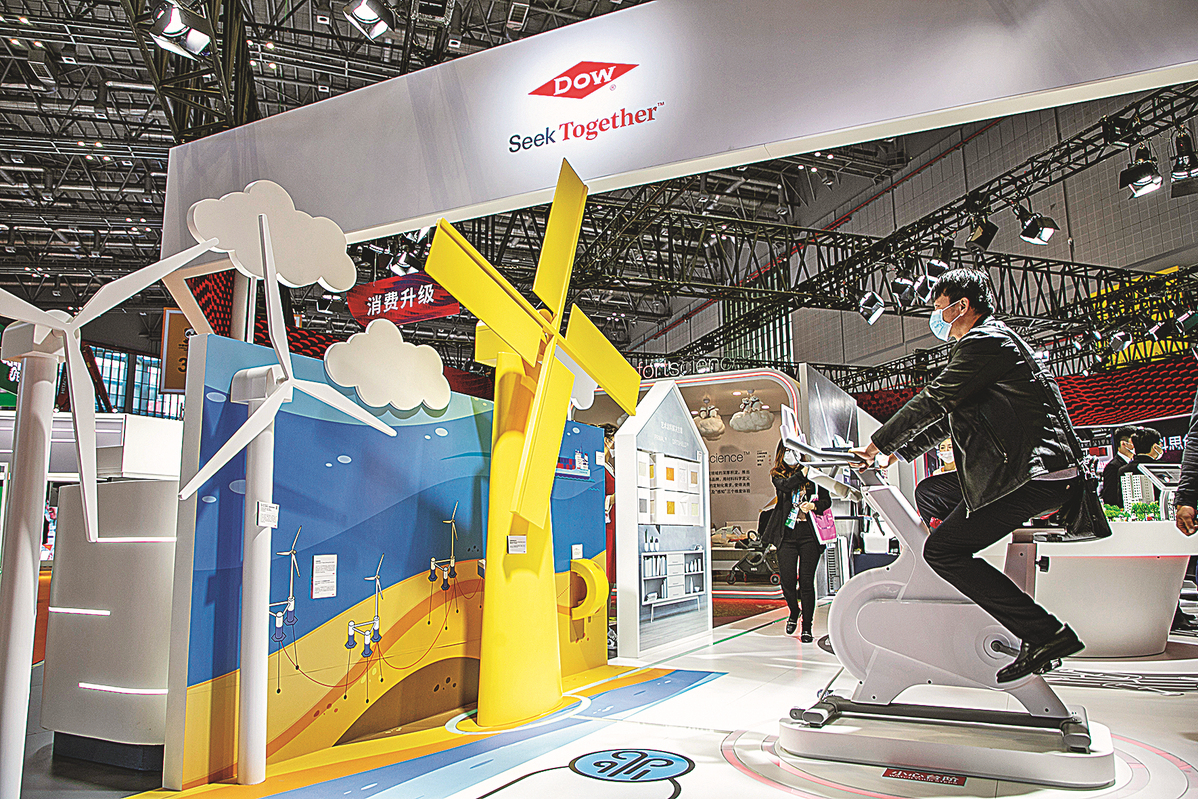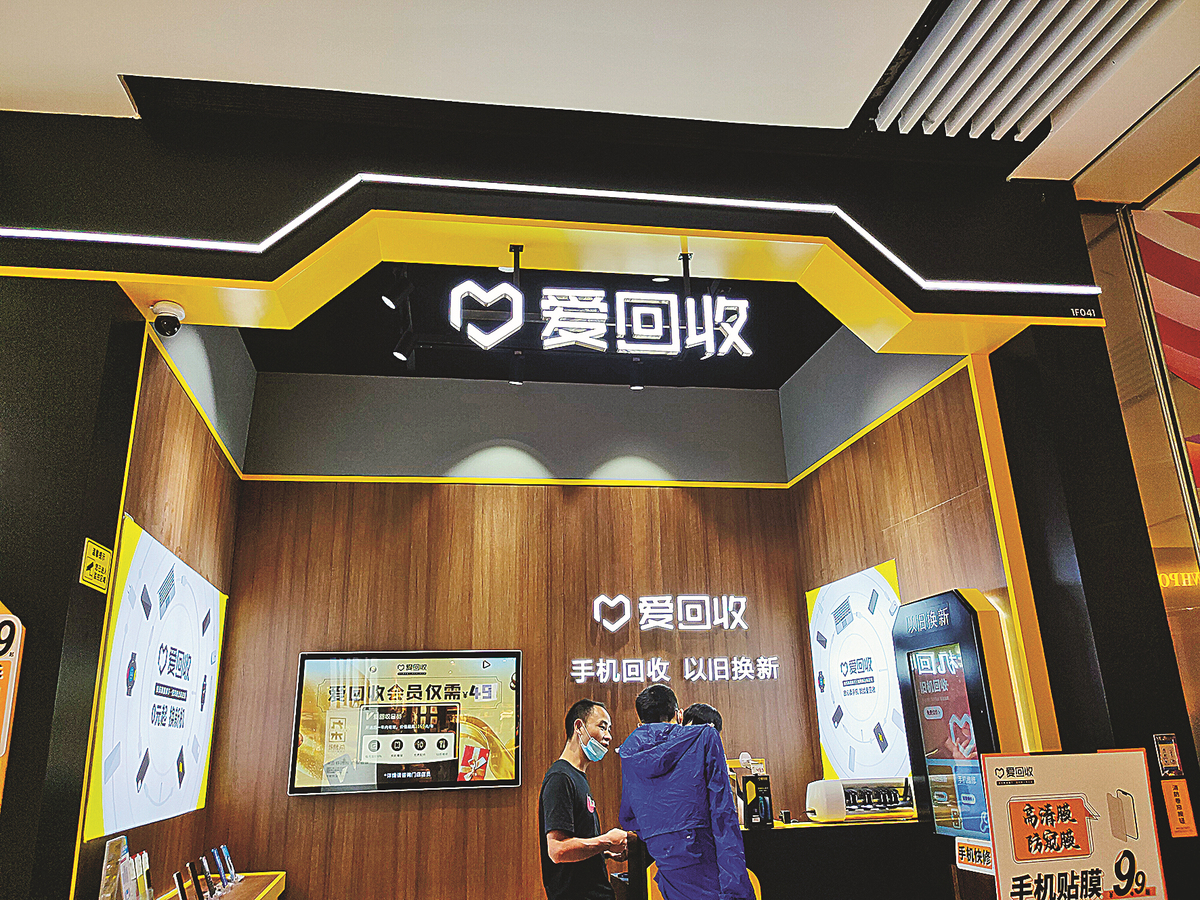Dow, local partners to jointly target plastic waste issue

A visitor tries out a power-generating stationary bike at Dow's booth during the fourth CIIE in Shanghai. [Photo/China Daily]
United States materials science company Dow is entering into a series of partnerships in China to advance the circular economy.
The latest example includes a three-way Memorandum of Understanding signed earlier this year with Liby, a local laundry detergent brand, and Lovere, an internet environment tech company.
The trio vowed to address plastic packaging waste. Dow's recyclable packaging solutions have been adopted for use in nine of Liby's products since the brand introduced China's first recyclable packaging for laundry pods in 2020.
Also enabled by Dow's propriety technologies, Liby's recyclable packaging earned the first "Double E" (easy-to-collect and easy-to-regenerate) label in China, which helps consumers distinguish recyclable packaging from other packaging.
Under the latest agreement, the Chinese detergent brand will be able to close the loop in plastic waste reuse by adopting recyclable packaging made with Dow's post-consumer recycled (PCR) resins, which are converted from plastic waste provided by Dow's recycling partner Lovere.
These new achievements are part of Dow's sustainability targets and commitment to close the loop by enabling 100 percent of its products sold into packaging applications to be reusable or recyclable by 2035, according to company executives.
"We are delighted to collaborate with industry leader Liby, who shares the same vision as Dow, to accelerate the move from linear to circular economy," said Bambang Candra, Asia-Pacific commercial vice-president of Dow Packaging and Specialty Plastics.
"These accomplishments are amongst the many that reflect our commitment to capture the full value of plastic and keep waste out of the environment, and we look forward to celebrating more milestones with our partners to achieve a sustainable future together."
Zhang Liping, Liby's chief scientist, said: "The use of recyclable packaging and PCR resins is one of Liby's sustainability focuses, which also supports China's peak emissions and carbon neutral goals. We are proud to be working with Dow to achieve a circular economy and to help stop plastic waste in China."
The partnership will continue to expand with several ongoing recyclable packaging projects in the pipeline, including another PCR resin application that will be announced soon.

A Lovere outlet is seen in Guangzhou, Guangdong province, in September. [Photo/China Daily]
The tie-up follows a suite of local partnerships as Dow turns the concept of circular economy into reality. Last year, Dow and Mengniu, China's leading dairy company, announced the successful commercialization of a shrink film made with Dow's PCR resin in Mengniu's product packaging.
Among the first for the food and beverage industry in the Asia-Pacific, the newly formulated one-pellet resin is 100 percent recyclable and will be used in Mengniu's secondary packaging for dairy products.
Dow, with its strategic recycling partners, utilizes domestic plastic waste collected from milk, water and juice bottles, as well as a discarded flexible film within China, and transforms it into PCR resin.
Specifically, the PCR resin is incorporated into the core layer of the collation shrink film and performs comparably to conventional options made with traditional resins.
The introduction of such recycled content in secondary packaging lets brand owners like Mengniu reduce carbon footprints and reconstruct used plastics so as to not let them add to existing plastic waste, according to Candra.
"After constructing China's first-ever 'plastic road' using recycled milk bottles, this initiative continues our trajectory to contribute to a circular plastics economy and close the loop by working with materials that are sustainable and recyclable," said Li Pengcheng, vice-president of Mengniu Dairy.
"In tandem, we hope to increase the use of recycled plastics, reduce greenhouse gas emissions and address the plastic waste issue in response to growing consumer concerns about the environment," Li said.


